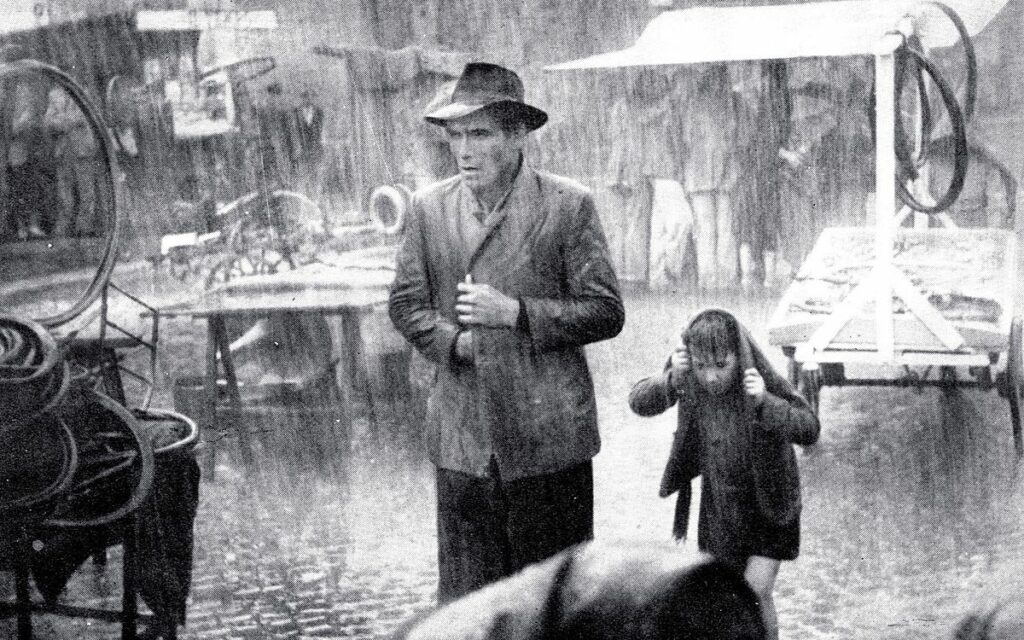Italy boasts a rich literary heritage, and its stories have captivated readers for centuries. But the magic of Italian narratives extends beyond the pages. A vibrant film industry has long drawn inspiration from these beloved books, transforming them into moving pictures that have resonated with audiences worldwide.
Delving into this cinematic treasure trove, we encounter some true classics. Alessandro Manzoni’s masterpiece, I Promessi Sposi (The Betrothed), has been adapted for the screen numerous times, with versions from 1923, 1941, and 1964 offering audiences a glimpse into the complexities of love, faith, and social injustice in 17th-century Italy.

Italian neorealism, a powerful post-war movement that emerged in the 1940s, produced some of the most enduring films based on Italian literature. Vittorio De Sica’s Ladri di Biciclette (Bicycle Thieves), based on Luigi Bartolini’s novel, is a poignant portrayal of a man’s desperate search for his stolen bicycle, his livelihood and his very dignity at stake. The film’s stark realism and focus on the working class resonated deeply with audiences who were grappling with the aftermath of war and social upheaval.
Literature isn’t limited to just serious drama when it comes to Italian adaptations. Films like Il Postino (The Postman), adapted from Antonio Skármeta’s novel, offer a heartwarming tale of friendship and the transformative power of literature. Massimo Troisi’s endearing portrayal of a postman befriending a Chilean poet in exile is a testament to the enduring power of human connection amidst isolation. The film’s idyllic setting on a small Mediterranean island provides a beautiful backdrop to the unlikely bond that blossoms between the two men.
Looking beyond the classics, contemporary Italian cinema also embraces literary adaptations. Elena Ferrante’s captivating Neapolitan Novels, exploring female friendship, societal pressures, and the complexities of growing up in Naples, were recently transformed into the successful and critically acclaimed series My Brilliant Friend. The series delves into the tumultuous relationship between Lila and Elena, two brilliant and fiercely independent young women, capturing the essence of Ferrante’s evocative prose and the social dynamics of post-war Italy.
The journey between Italian books and movies is a two-way street. Films can spark interest in the original works, allowing readers to delve deeper into the characters and stories they encountered on screen. Take Luchino Visconti’s Il Gattopardo (The Leopard), based on Giuseppe Tomasi di Lampedusa’s novel. This sprawling historical epic, set against the backdrop of the unification of Italy, explores themes of loss, change, and the fading aristocracy. The film’s grandeur and meticulous attention to detail transport viewers to a bygone era, while the novel offers a richer understanding of the characters’ motivations and the psychological impact of societal upheaval.
Whether it’s the heart-wrenching social commentary of Cinema Paradiso, Giuseppe Tornatore’s ode to the magic of cinema inspired by Alfredo Bryce Echenique’s short story, or the psychological thriller The Conformist, Bernardo Bertolucci’s adaptation of Alberto Moravia’s novel exploring fascism and identity, Italian literature brought to life on screen offers a unique opportunity to experience the beauty and depth of Italian storytelling.
So, the next time you’re looking for a captivating film, consider exploring Italian adaptations. You might just discover a new favorite book, revisit a cherished story in a fresh and visually stunning way, or gain a deeper understanding of Italian history and culture.













